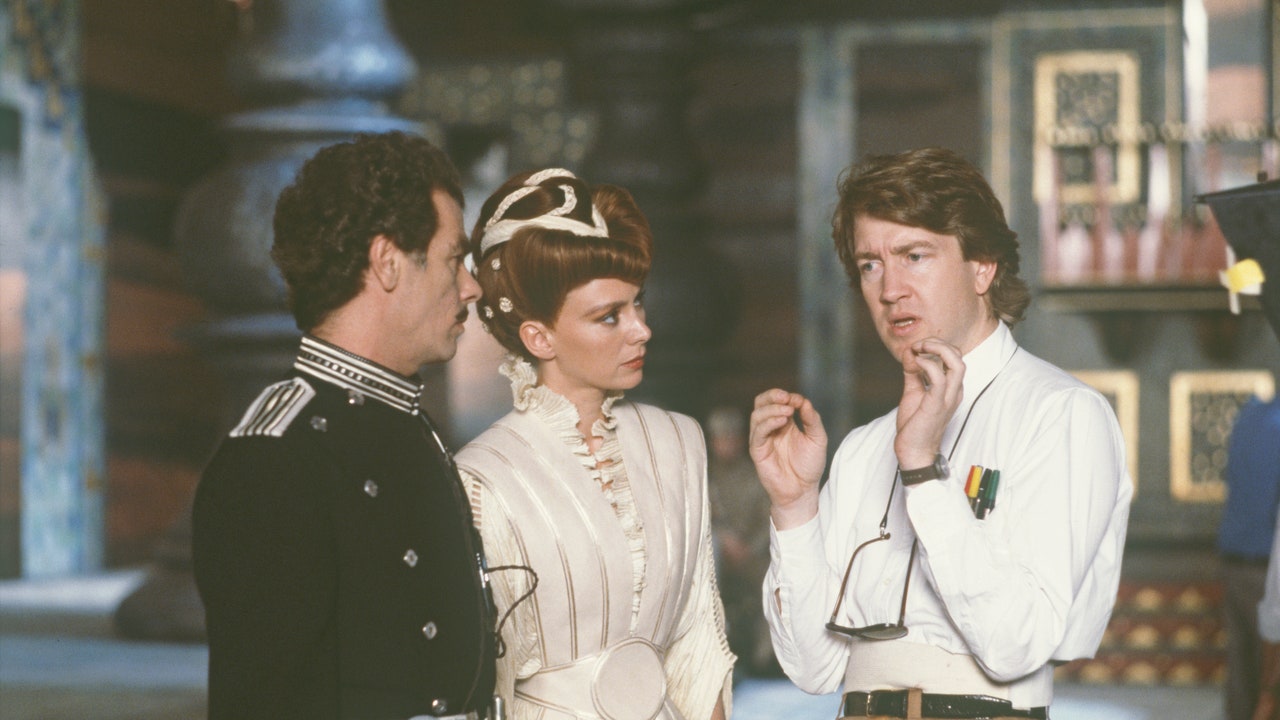The outpouring of obituaries for visionary director David Lynch namecheck some of his greatest achievements in their headlines: Twin Peaks, Mulholland Drive, Blue Velvet. And some are also leading with the film he considered his greatest disappointment: his 1984 adaptation of Frank Herbert’s Dune.
He probably would have hated that. In interviews over the years, he called Dune “a huge gigantic sadness in my life,” saying that he “died a death while making it.” Was it really such a failure? By most metrics, yes. It lost ten million dollars at the box office, alienated fans, critics, and casual viewers, and remains his lowest-rated film on Rotten Tomatoes by a wide margin. Worst of all, Lynch himself didn’t like the final product—he cut over an hour of footage from the theatrical release in a compromise with his producers and Universal Studios.
Yet for all its flaws, Lynch’s Dune is essential to his filmography, to Herbert’s franchise, and to science fiction on film. It’s often baffling, unwatchable at times, and completely unhinged throughout. It sticks to some of the strangest parts of the source material, swerves from some of the book’s most beloved plot points, and gives House Atreides a pug mascotfor absolutely no reason whatsoever. But before this movie, people thought Dune was unfilmable. Lynch was the first to prove them wrong.
The latest generation of moviegoers associate Dune with it-boy Timothée Chalamet and sci-fi maestro Denis Villeneuve. Some may not know that this latest series is the third time Dune has been brought to the screen (counting a 2000 made-for-TV film by John Harrison) and, depending how you count, the fifth attempt. Before Lynch’s movie, the avant-garde director Alejandro Jodorowsky failed in epic fashion to get the Dune made, burning through $2 million in preproduction before shooting a single frame. Ridley Scott was also tapped to take a shot; he wrestled with the script before giving up and making Blade Runner. When producer Dino de Laurentiis approached Lynch about the project, there was plenty of precedent to suggest Dune was an impossible property.
Lynch had been circling sci-fi after the success of The Elephant Man (the most-nominated picture in his filmography if not his most acclaimed), passing on an opportunity to direct Return of the Jedi. Instead, he signed on to Dune. You can get the appeal—the hallucinatory universe filled with spice and space witches seems like a natural fit for Lynch’s surrealism. But like directors before and after him, Lynch grappled with the sheer unwieldiness of Herbert’s book. Jodorowsky wanted to shoot a 14-hour movie. Lynch was able to get that down to four, still double the studio standard at the time. And much of Dune resists easy visual representation—folding space, spice agony, and, of course, the giant sandworms. CGI was still in its infancy. Even the vocabulary presented a challenge. Anyone can say Jedi, but how do you pronounce Kwisatz Haderach?

